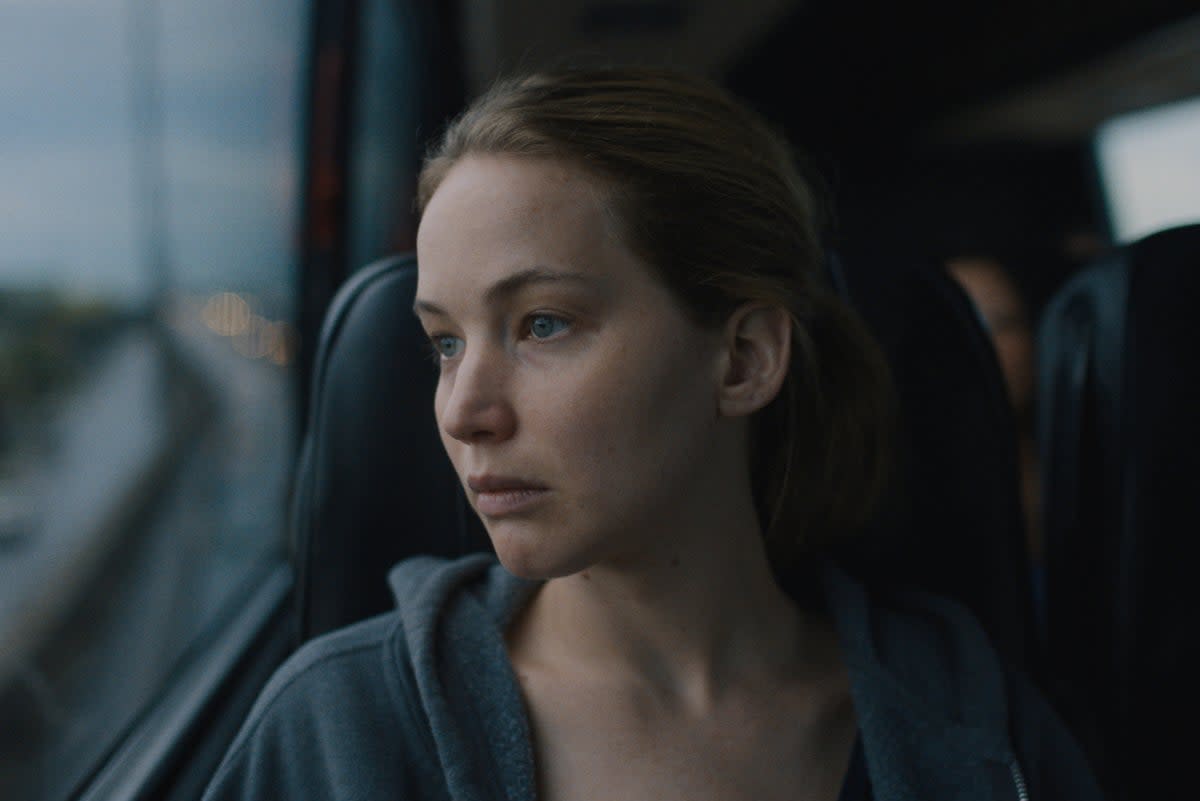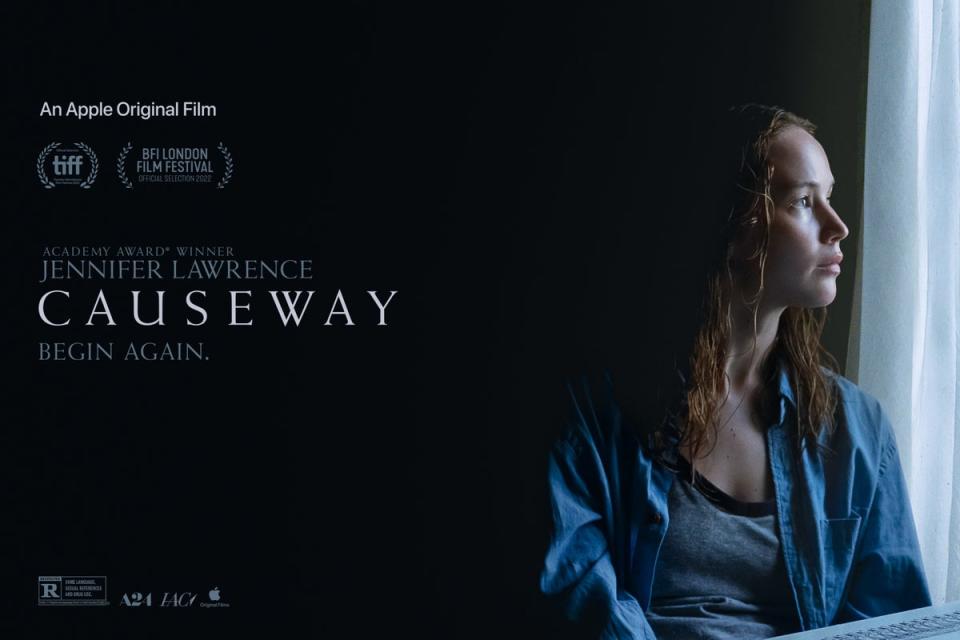Causeway on Apple TV+ review: Jennifer Lawrence delivers a masterclass in subtlety

For the first five minutes of Causeway, Jennifer Lawrence is on screen but completely silent. It is clear that a tangle of emotions lies just beyond her glazed eyes, but her face remains blank, save for the occasional flicker of anguish.
In these opening moments, with the help of carer (Jayne Houdyshell), her character Lynsey slowly learns how to walk and eat; later she wakes up in the night vomiting and screaming. She is casually offensive, blurting things out that she can’t control.
Lynsey, it transpires, is a US military engineer who has just returned from a tour of duty in Afghanistan. An IED - improvised explosive device - and an ambush left several of her friends dead, and Lynsey with a brain injury.
Staying with her mother (Linda Emond), with whom she shares a strained relationship in a down-and-out area of New Orleans, she is desperate to return to her work as an engineer. But she is neither physically nor mentally ready, so in the meantime she secures a job cleaning pools.
While the premise of Causeway hinges on unimaginable violence and drama, nothing much actually happens in the film itself, the debut of Lila Neugebauer, who made her name in the world of Broadway.
Rather, in the space of the film’s 95 slow-but-quietly-devastating minutes, it is through glances and brief moments of unspoken communication that the audience glean hints at Lynsey’s state of mind and relationship with those around her.
Lawrence delivers an absolute masterclass in communicating so much while doing so little. Subtlety and subtext reign as Lawrence drifts and whispers her way through the mundanity of Lynsey’s post-war life, where time is long, money is short and companionship sparse.

Sparse, that is, until Lynsey meets James (Atlanta’s Brian Tyree Henry), a mechanic with whom she strikes up a will-they-won’t-they friendship. James is helpful and kind, but there are deep wells of sorrow behind his eyes.
Lawrence and Henry have an undeniable chemistry (that the actors are neighbours in Los Angeles and became friends likely helped), and their portrayal of two tortured souls finding comfort and solace in one another feels easy and intimate.
Henry delivers a stellar performance, expertly peeling back the many layers that his character holds as the film progresses. But when it arrives, the relationship’s climax - as well as the plot’s - feels lazy and unexplained, out of place in an otherwise thoughtful film.
While the plot might be flawed, where Causeway excels is in its subtly damning indictment of the lives available to low income, small town Americans. Why, we initially wonder, could Lynsey possibly want to return to the bloody scene of the crime, the turmoil of war which left her paralysed and scarred?
It becomes clear that what she fears is far more insidious – the everyday tragedy of the life that awaits her at home.
Unlike much of Lawrence’s film work, Causeway is not a blockbuster. There are no dazzling visuals or evocative score, no dramatic plot to sink your teeth into. In fact, you might come away from it feeling slightly underwhelmed. But sit with it for a while, let it wash over you. It is here, in the quiet moments, where its brilliance lies.
Causeway is available to watch now on AppleTV+

 Yahoo Movies
Yahoo Movies 
